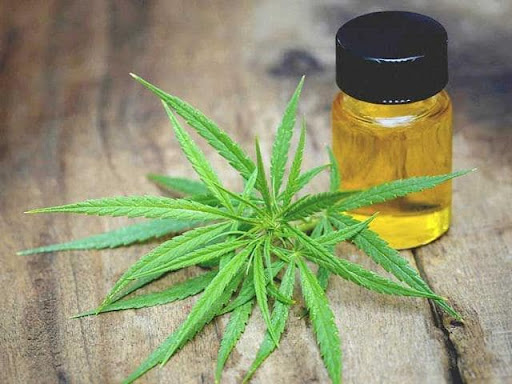
Insect bites are one of the most common outdoor annoyances, especially in warmer months when mosquitos, bees, and other bugs are more active. The itching, swelling, and redness that follow an insect bite can be a source of discomfort for hours or even days. While traditional treatments like antihistamines and topical creams have long been used to alleviate these symptoms, a new player has emerged in the realm of natural remedies—CBD oil.
CBD, or cannabidiol, is a compound derived from the hemp plant that has gained significant attention in recent years for its anti-inflammatory and soothing properties. Beyond its well-known uses for managing anxiety and chronic pain, CBD is now being explored as an effective treatment for skin irritation, including that caused by insect bites. But how does CBD work in reducing irritation from bug bites? And is it truly effective? This blog post will delve into the science behind CBD oil and how it can help soothe the skin after an insect bite.
Understanding Insect Bites and Their Effects on Skin
Before diving into the role of CBD oil, it’s important to understand what happens when an insect bites. When a mosquito, bee, or any other biting insect pierces the skin, it injects saliva or venom, which contains proteins that the human immune system recognizes as foreign. In response, the body releases histamines to fight off these invaders. Histamines cause blood vessels to dilate and result in inflammation, which leads to the telltale itching, redness, and swelling at the site of the bite.
While the symptoms typically resolve on their own after a few hours or days, they can be incredibly uncomfortable. Scratching the bite can further aggravate the skin, leading to infection or prolonged healing time. This is where a treatment that can reduce inflammation and calm the skin becomes vital.
The Science Behind CBD Oil
CBD is one of over 100 cannabinoids found in the hemp plant. Unlike THC (tetrahydrocannabinol), the compound responsible for the psychoactive effects of hemp, CBD does not produce a “high.” Instead, it interacts with the body’s endocannabinoid system (ECS), a complex cell-signaling network that plays a key role in regulating processes such as inflammation, pain, immune response, and skin health.
The ECS is made up of receptors (CB1 and CB2) located throughout the body. When CBD is applied topically, it interacts with the CB2 receptors found in the skin. This interaction triggers a series of responses that help reduce inflammation, alleviate pain, and promote faster healing.
CBD Oil as an Anti-Inflammatory Agent
One of the most well-known benefits of CBD oil is its anti-inflammatory properties. Research suggests that CBD inhibits the production of certain cytokines and enzymes that promote inflammation, including prostaglandins and COX-2. By reducing inflammation, CBD oil can help minimize the redness, swelling, and discomfort associated with insect bites.
In a 2018 study published in the journal Skin Pharmacology and Physiology, researchers found that CBD significantly reduced skin inflammation in animal models. The study demonstrated that CBD could decrease the production of pro-inflammatory cytokines, which are responsible for the body’s inflammatory response. This anti-inflammatory effect is especially useful in treating conditions where inflammation plays a key role, such as insect bites.
CBD Oil and Its Role in Pain Relief
In addition to reducing inflammation, CBD is also known for its analgesic (pain-relieving) properties. When an insect bites, the skin’s nerve endings are stimulated, causing pain or discomfort. CBD oil can help alleviate this by interacting with the TRPV1 receptor, which is responsible for regulating pain and temperature. By activating this receptor, CBD reduces the sensation of pain, providing relief from the itching and irritation caused by the bite.
A 2016 study in the European Journal of Pain explored the topical application of CBD in rats with arthritis and found that it significantly reduced joint pain and inflammation without causing any noticeable side effects. While this study focused on chronic pain, it highlights CBD’s potential in managing acute pain, such as that from insect bites.
Soothing the Skin: CBD’s Role in Hydration and Healing
Skin irritation from insect bites often leads to dryness, which can exacerbate itching and discomfort. CBD oil is rich in omega-3 and omega-6 fatty acids, which are essential for maintaining skin hydration and health. These fatty acids help strengthen the skin’s natural barrier, preventing moisture loss and promoting healing.
Moreover, CBD oil contains antioxidants like vitamins A, C, and E, which protect the skin from free radical damage and aid in the repair of damaged skin cells. This can be particularly beneficial after a bug bite, as the antioxidants help reduce scarring and accelerate the skin’s healing process.

CBD vs. Traditional Treatments
Traditional treatments for insect bites include antihistamine creams, corticosteroids, and calamine lotion. While these treatments are effective, they can sometimes cause side effects such as skin thinning (in the case of corticosteroids) or excessive dryness (with calamine lotion). CBD oil, on the other hand, is generally well-tolerated and comes with minimal side effects. Its natural composition also makes it a more appealing option for those looking to avoid synthetic chemicals.
Additionally, CBD’s dual-action of reducing inflammation and relieving pain sets it apart from other treatments, which may only address one symptom. By targeting both the root cause (inflammation) and the symptom (itching or pain), CBD oil provides comprehensive relief from insect bites.
How to Use CBD Oil for Insect Bites
If you’re interested in trying CBD oil for insect bites, there are several ways to apply it. The most effective method is topical application, as it allows the CBD to interact directly with the skin’s cannabinoid receptors. CBD balms, creams, and salves can be applied directly to the bite for localized relief. Look for products that combine CBD with other soothing ingredients like aloe vera, chamomile, or lavender oil to enhance the calming effect.
For best results, clean the affected area before applying the CBD product to ensure proper absorption. Massage the oil or cream into the skin, and reapply as needed throughout the day until the irritation subsides.
Conclusion: CBD Oil as a Natural Remedy for Insect Bites
As interest in natural remedies continues to grow, CBD oil is emerging as a promising option for reducing skin irritation from insect bites. Its ability to reduce inflammation, relieve pain, and promote skin healing makes it a versatile and effective solution for managing the discomfort that comes with insect bites. While more research is needed to fully understand its long-term effects, current studies and anecdotal evidence suggest that CBD oil could be a valuable addition to your first aid kit.
Whether you’re spending time outdoors or simply want to be prepared for an unexpected bug bite, having CBD oil on hand could provide quick and natural relief. Just be sure to consult with a healthcare professional, especially if you have sensitive skin or are new to using CBD products. With its soothing properties and growing body of research, CBD oil may very well be the next go-to remedy for itchy, inflamed skin. Visit North Iowa Today if you need more information or have any questions about CBD Oil in reducing skin irritation.



